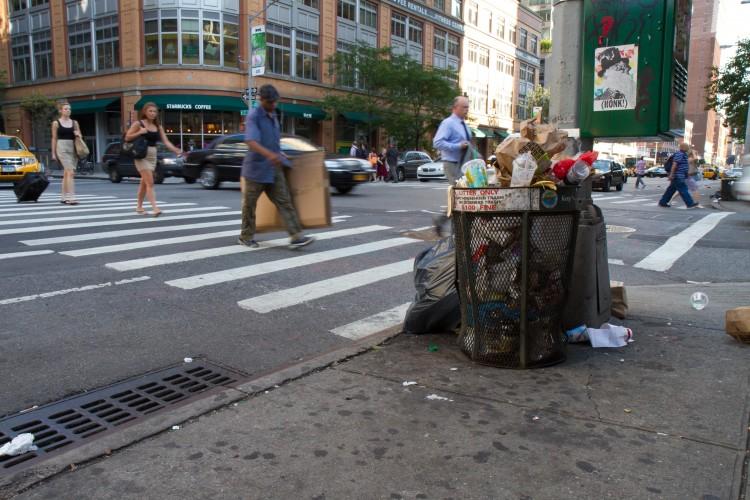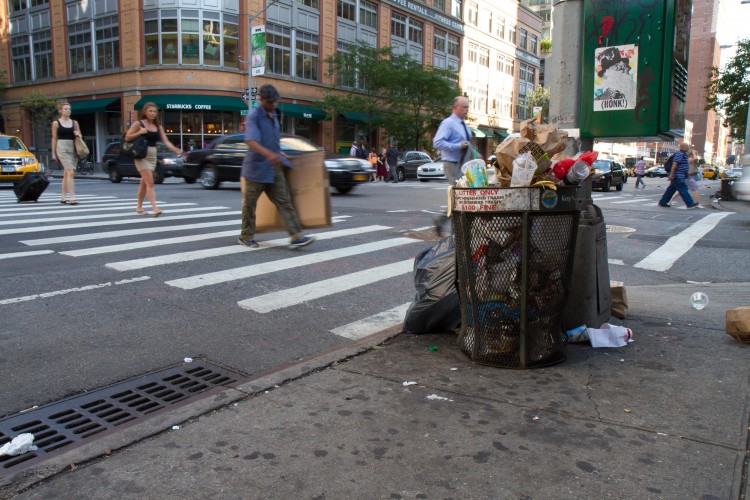NEW YORK—During the steamy days of summer, many New Yorkers head to the city’s 14 miles of beaches to cool off by taking a swim in the ocean. City officials visited Coney Island Tuesday to remind bathers that keeping the beaches clean doesn’t end once your feet are off the sand—it starts in the city.
“New Yorkers need to know that if you drop a candy wrapper in the streets there is a chance it will get washed up on our beaches during a rainstorm,” Carter Strickland, New York City Environmental Protection (DEP) commissioner said.
To understand how a candy wrapper dropped in Manhattan could end up on a beach in Brooklyn you need to understand how the city’s sewer system works.
New York City has a combined sewer system, meaning the sanitary sewers that take wastewater from homes and businesses, and the storm sewers, which take rain water, all go to the same place.
“When it rains really hard, or for a long time, there is too much water in the system and it overwhelms the system. Since the sewage plant cannot handle all that flow, the excess is sent out into the [Hudson] river,” said Matt Malina of NYC H20, a nonprofit that educates the public about the city’s water systems.
That candy wrapper—along with thousands of gallons of untreated sewage—ends up in the river. That candy wrapper is not biodegradable and will therefore wash up on a beach.
According to Malina, Mother Nature can take care of the untreated sewage, “Eventually it just gets diluted because the Hudson River and the East River are tidal estuaries, so they change direction with the tide. It gets flushed out.”
Swimming after a heavy rain, however, is not recommended, due to higher bacteria counts in the water.
DEP has taken numerous measures to curb the amount of untreated sewage dumped into the rivers following heavy storms, as well as educating youth not to litter. This has resulted in the cleanest waterways in 100 years, according to DEP.
“New York is much cleaner today than it used to be and that is because of people taking pride in where they are from and taking care of where they are from,” George Pavlou, U.S. Environmental Protection Agency Deputy, said.
DEP, in conjunction with other city agencies, is also using green initiatives to help reduce storm water runoff, which contributes to overflows. Malina mentioned green roofs, which have fresh vegetation instead of concrete or blacktop, “One of the benefits is when it rains, it soaks up a lot of water and that water will not go in the street.”
Dealing with the overflows is a long-term problem that will require long-term solutions, however, not littering is something every citizen can do—and it’s free.
Pavlou reminded everyone, “When it rains, you don’t go to the beach, but your trash does.”
The Epoch Times publishes in 35 countries and in 19 languages. Subscribe to our e-newsletter.







